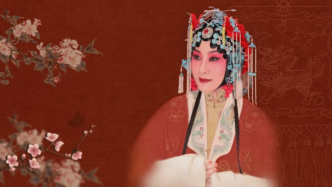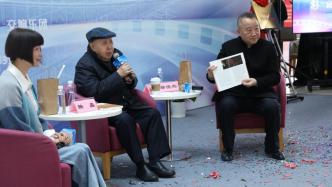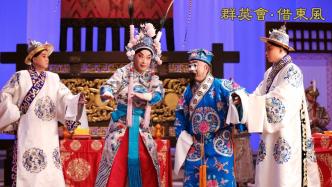
On April 25, as the second batch of key films of the "Peking Opera Film Project", the four Peking opera films "Siro Visits His Mother", "Red Mansion Eryou", "The Meeting of Heroes Borrowing the East Wind" and "Wen Ji Returns to Han" were screened nationwide for the first time. According to Xia Gang, a distinguished professor of Beijing Film Academy, the "Peking Opera Film Project" that uses films to preserve Peking Opera classics can permanently pass on the demeanor of the best contemporary Peking Opera artists and musicians through video preservation.
According to reports, in 2011, the "Peking Opera Film Project" was launched, and a group of the most outstanding contemporary Peking Opera artists and film creators joined it. Its characteristics, showing the charm of traditional opera, combining film and Peking opera, have successfully tempered a number of classic Peking opera film works such as "Dragon and Phoenix Blessing", "Farewell My Concubine", "Zhenguan Grand Event" and "The Orphan of Zhao".
After years of technological exploration and artistic integration, four newly produced Peking Opera films have been officially released nationwide, which can undoubtedly be regarded as a concentrated display of the important achievements of the creative transformation and development of the "Peking Opera Film Project". The work uses modern film techniques including visual effects, etc., and has content with the charm of Peking Opera. It not only makes many fans hooked, but also attracts the attention of many fans outside the circle.
Light and shadow reappears the quintessence of China "insert wings for the ancient art of Peking Opera"
Liu Tong, director of the Beijing Peking Opera Theater, believes that as a Peking Opera performer, one should not forget the great help and promotion role of movies to Peking Opera. "It is precisely because Mr. Ren Qingtai, the first Chinese filmmaker in 1905, made an important decision to put Mr. Tan Xinpei's "Dingjun Mountain" on the big screen, which established the first Chinese film work and opened It has created the history of Chinese film, and also achieved a high degree of integration and close embrace of the modern industrialized art of Chinese film and the best traditional opera art of the Chinese nation."
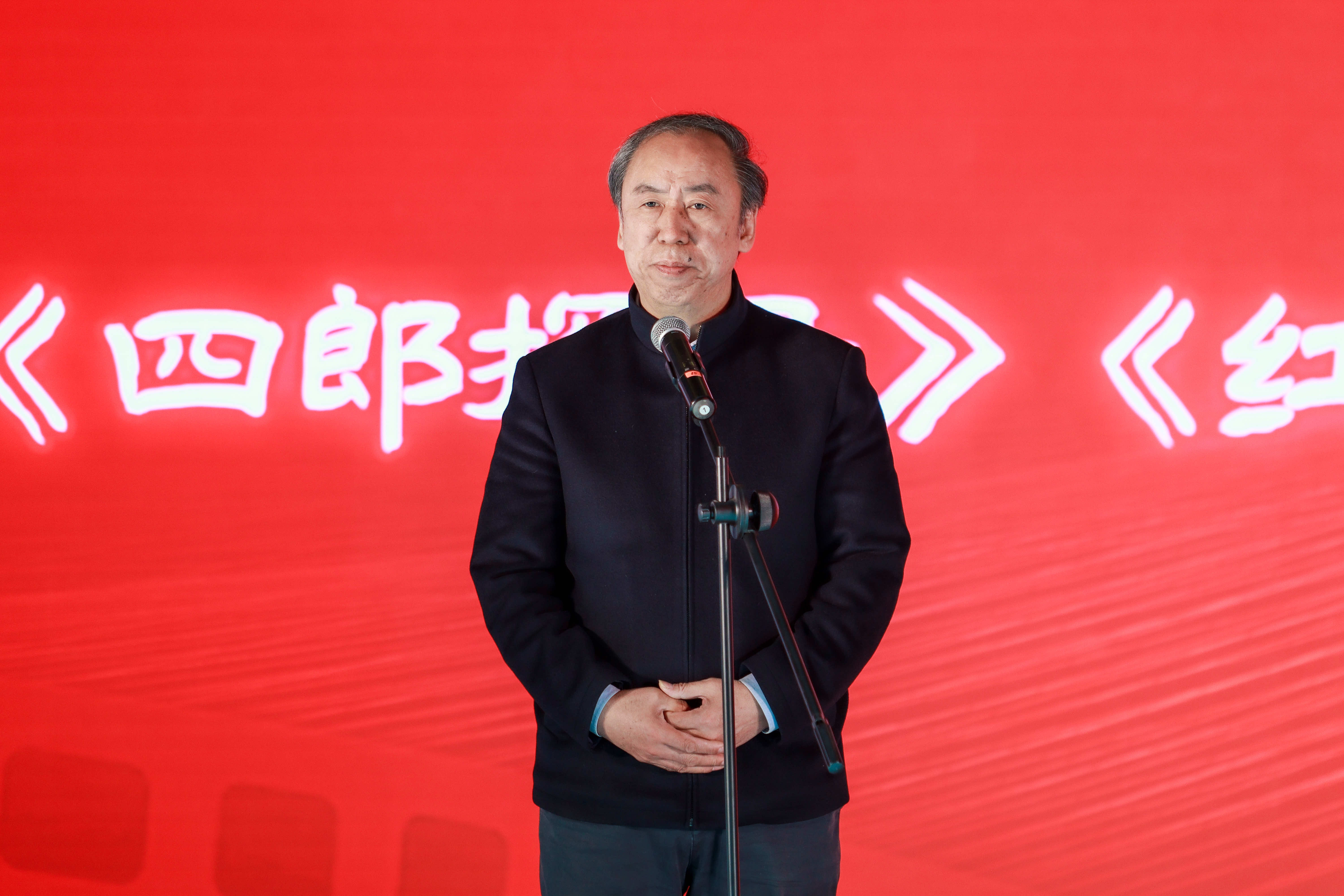
Liu Tong, Director of Beijing Peking Opera Theater
"We will not forget that when Mr. Mei Lanfang visited the United States in 1930, it was precisely because of the many film art workers in Hollywood in the United States that the visit left a lot of precious and valuable art materials. , witnessed the landing of Chinese artists in the Hollywood film industry in the United States, which promoted the in-depth exchange and integration of Chinese and Western cultures. During the Anti-Japanese War, Master Mei Lanfang created and arranged such outstanding works as "Anti-Golden Soldiers" and "Life and Death" out of patriotism. It is precisely because of the efforts of filmmakers in Shanghai in 1948 that the Beijing opera work "Life and Death" was made into China's first color feature film." Liu Tong said.
Since the establishment of the "Peking Opera Film Project", China Film Co., Ltd. has been deeply involved in the shooting and distribution of Peking Opera films. Ren Yue, deputy general manager of China Film Co., Ltd., said: "During the progress of the project, Chinese Peking Opera artists and filmmakers have always upheld a high sense of responsibility and profound professionalism, and successfully incubated a number of Peking Opera films. In the future, China Film will continue to Undertake the task of promoting traditional culture, disseminating opera art, and cultivating young audiences."
It is reported that the four Peking Opera films have also been collected by the China Film Museum. Chen Ling, director of the China Film Museum, is very honored by this. "The Peking Opera Film Project has left precious artistic materials for future generations, added a rich touch to the history of opera films, and made special contributions to the creative transformation and innovative development of China's excellent traditional culture."
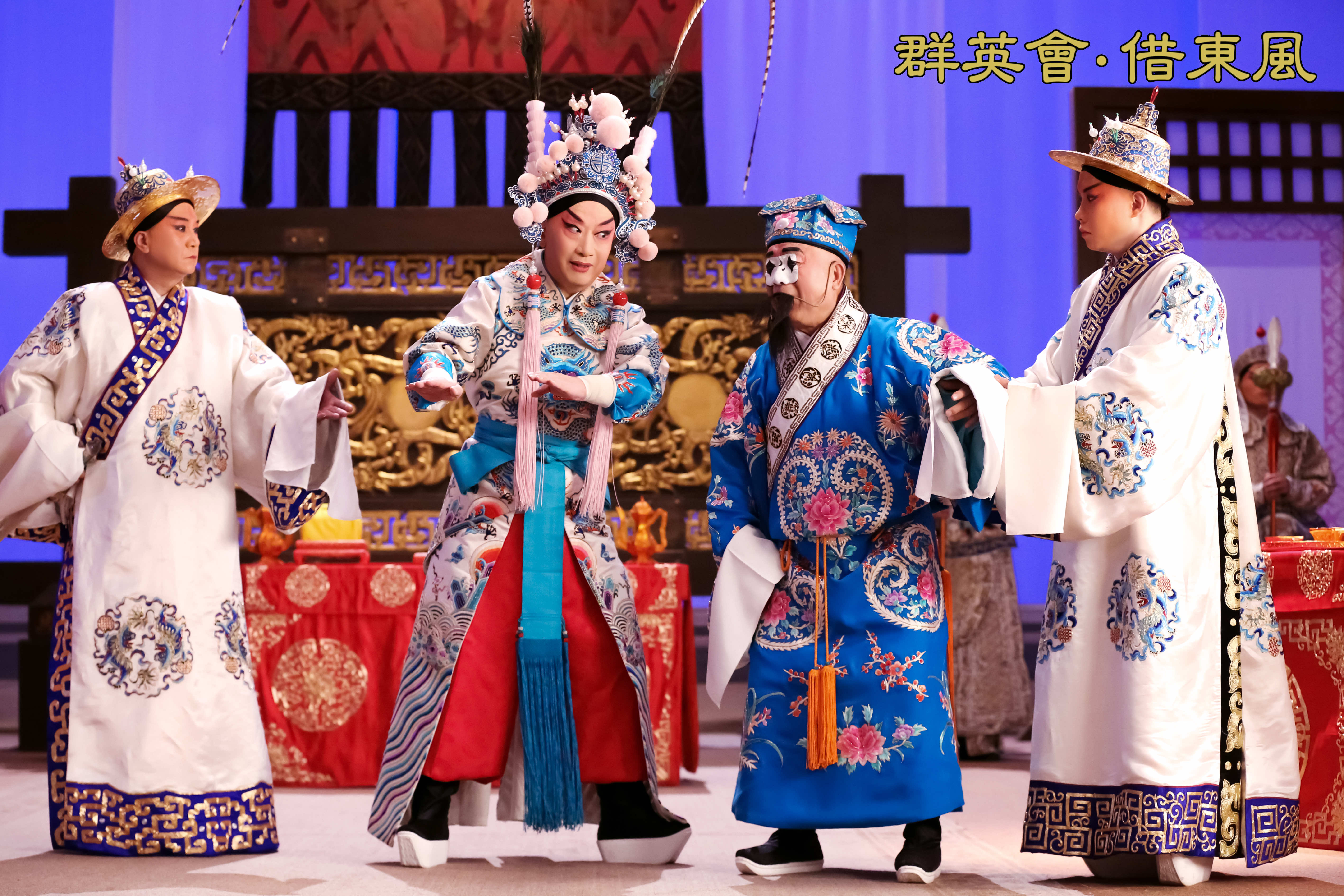
Stills of "The Meeting of Heroes Borrowing the East Wind"
Peking opera is inseparable from "jiaoer". This time, the four Peking opera films have invited famous Peking opera masters to sit in the role. The majestic Zhou Yu in "The Meeting of Heroes Borrowing the East Wind" is played by Ye Shaolan, a Peking Opera master and 80-year-old Peking Opera performer. Upholding integrity and innovation is a successful collaboration between Beijing opera and film, and it is a great honor for me to participate."
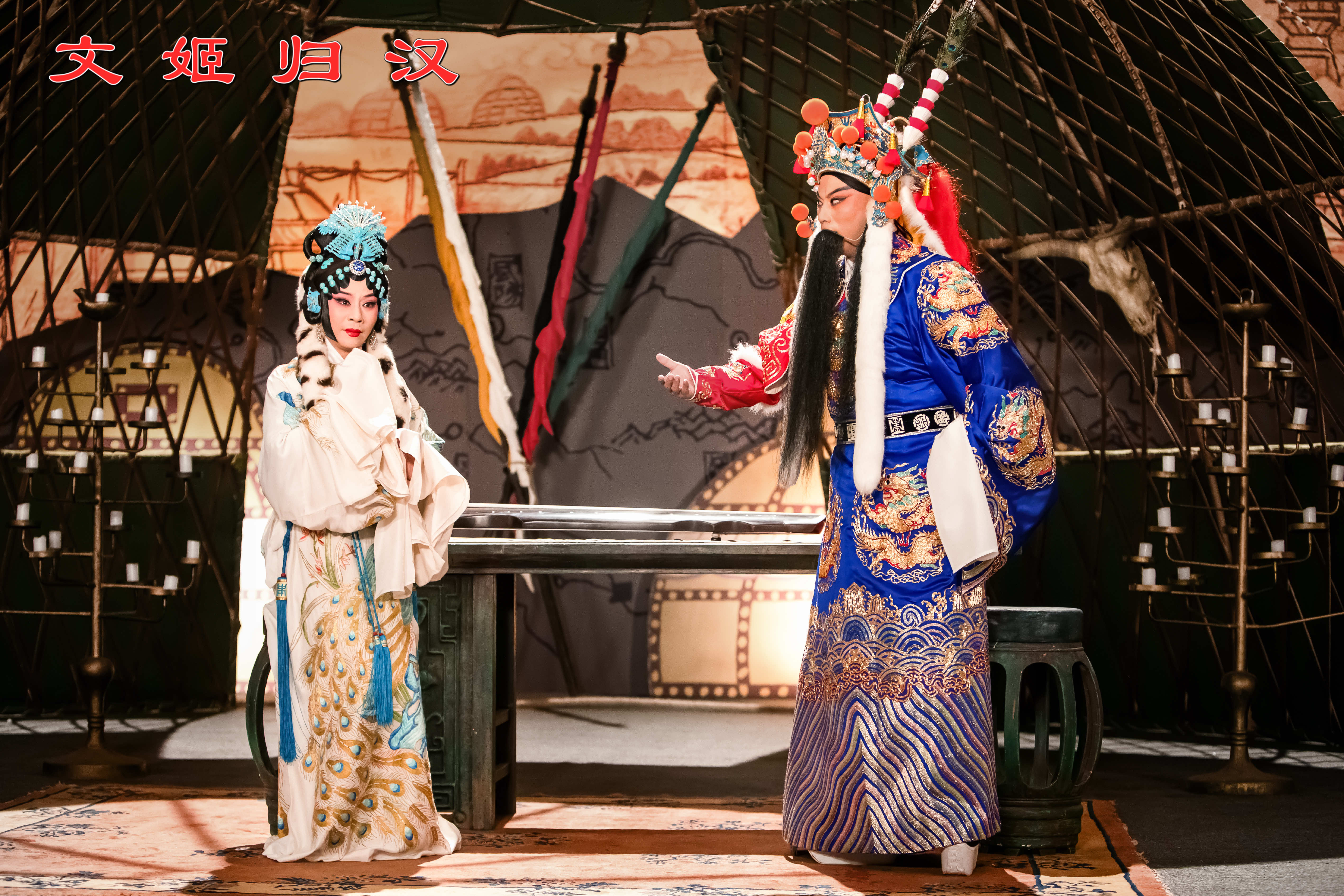
Stills of "Wen Ji Returns to Han"
As an outstanding inheritor of the contemporary Cheng School, "Wen Ji Returns to Han" performed by Chi Xiaoqiu, a famous Peking opera master, can be regarded as a masterpiece. As soon as she raised her eyes and sighed, Cai Wenji's vicissitudes and feelings were revealed, and the big screen magnified her performance charm. Facing the enthusiasm of the audience, Chi Xiaoqiu sighed: "The Peking Opera Film Project has injected new wings into the ancient art of Peking Opera, allowing Peking Opera to fly higher and go further in the new era and new journey."
Peking opera movies are not "eliminated" but "broken", turning listening to operas into "watching operas"
Xun Hao, the grandson of the famous Peking Opera performer Xun Huisheng and the director of the movie "The Red Chamber", believes that "movies are realistic, but Peking Opera is freehand and virtual. Movies are a fusion of fiction and reality." On the stage of Peking Opera The mutual integration of art and film art not only reflects the inheritance and development of Peking Opera art, but also reflects the great charm and inclusiveness of Peking Opera culture. Vigorous and vigorous, it also shows its original intention of constant change.
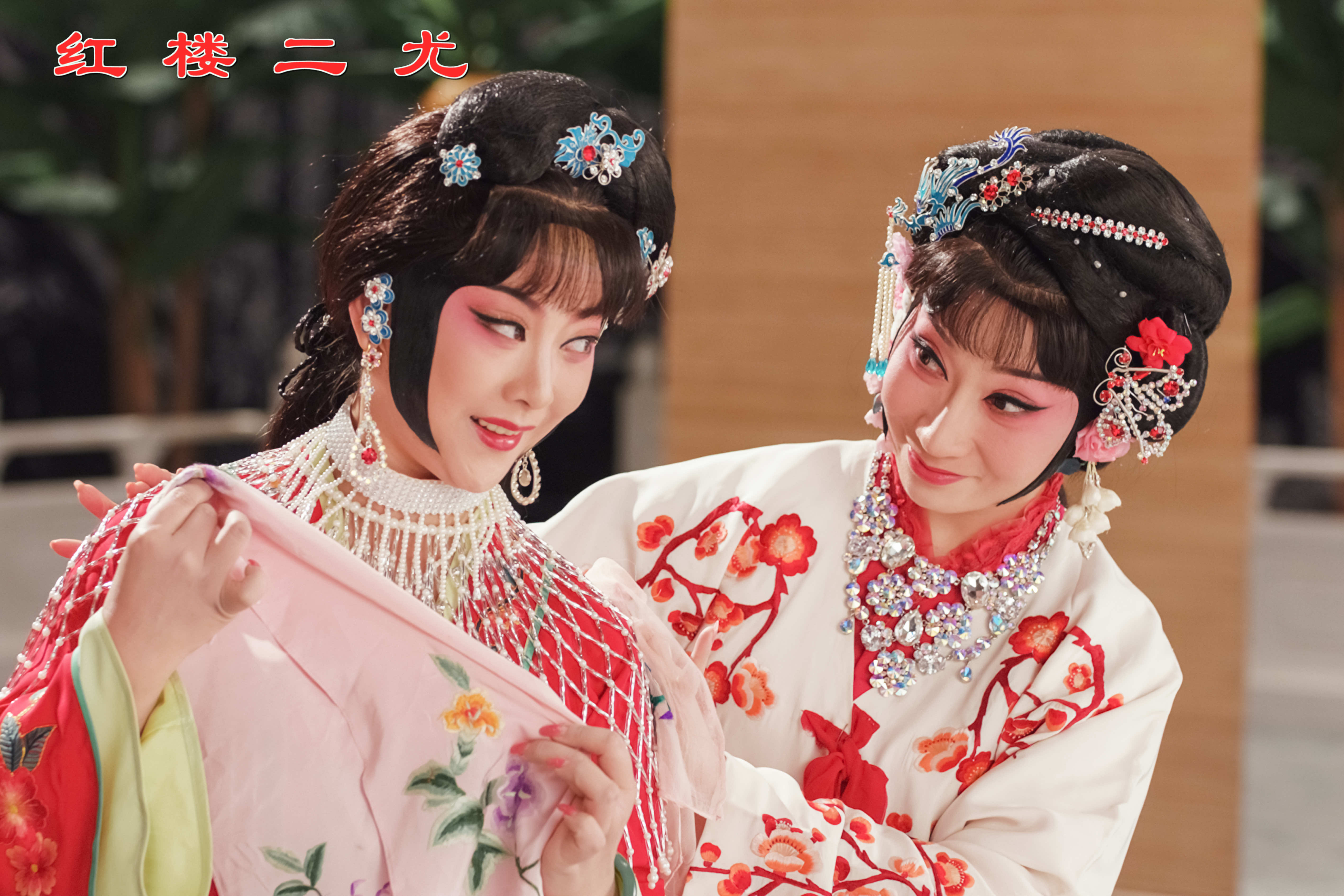
Stills of "Wen Ji Returns to Han"
As the director of the films "Red Chamber Eryou" and "Wen Ji Returns to Han", the well-known director Xia Gang shared his shooting experience, "The shooting of every Peking Opera movie is a big challenge for me, just like "Wen Ji" The story of "Return to Han" takes place in the desert grassland, but it is very difficult to show the grassland scenery on stage, so I deliberately drove to the grassland by myself."
Among the 21 films of the "Peking Opera Film Project", "The Meeting of Heroes Borrowing the East Wind" can be said to be the largest and most difficult film to shoot. Ma Chongjie, the nephew of Peking opera master Ma Lianliang, has also directed "The Orphan of Zhao" and "Xie Yaohuan" in the "Peking Opera Film Project" before. He told The Paper reporter, "After receiving "The Meeting of Heroes: Borrowing the East Wind", my first reaction was that there are three major aspects of this drama: big drama, big scene, and old age of the actors. The combined age of the seven leading actors is more than 500 years old." , Mr. Shang Changrong, who played Cao Cao, was almost 80 years old when he filmed this play."
"It can be said that since the beginning of Peking Opera, there has been the play "The Meeting of Heroes Borrowing the East Wind". The predecessors once filmed "The Meeting of Heroes Borrowing the East Wind". To remake this classic in the new era, we must not only respect and inherit the classic works of the previous generation of masters, but also have creative transformation, inheritance and development. In On the basis of maintaining the original flavor of Peking Opera, we boldly used CG technology this time to present things such as straw boats borrowing arrows, horizontal lance poems, including the burning warship behind, etc. From the perspective of visual effects, it can give the audience some new Enjoyment and shock." Ma Chongjie said.
"Three or four people are thousands of troops and horses, and six or seven steps are thousands of miles away." In Ma Chongjie's view, Peking Opera movies can never be separated from "one table and two chairs" on the stage. "Movies focus on realism, while operas focus on freehand brushwork. With the continuous development and evolution of the film industry's production technology, it provides a broader space for the outward extension of the Peking Opera stage."
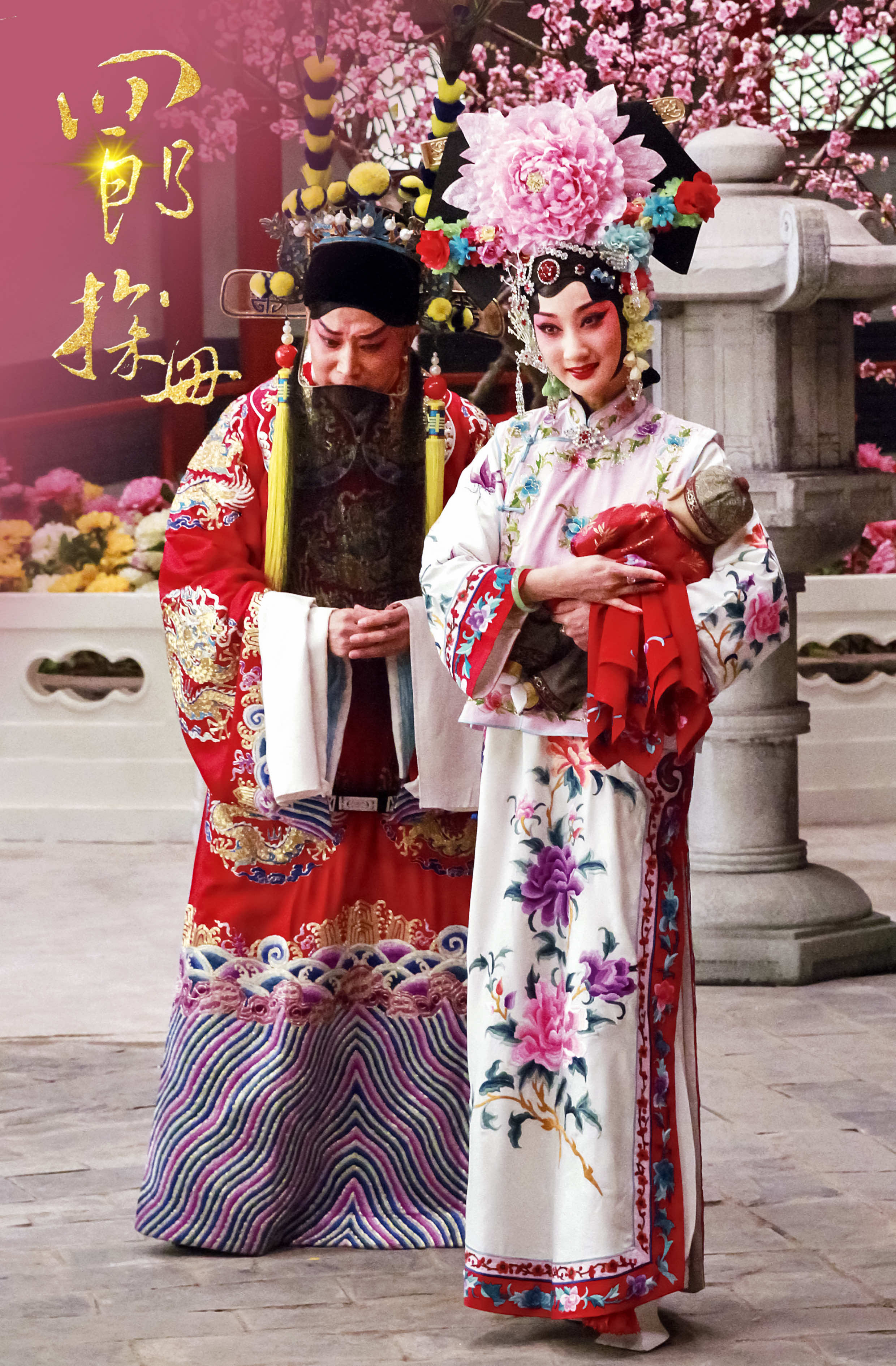
Stills of "Shiro Visits His Mother"
He took the Peking Opera film "Siro Visits His Mother" directed by him as an example. In the classic "Zotting the Palace", he not only used the spatial structure of the Peking Opera stage to build part of the scene, but also used film visual effects technology. In the studio of two pillars, a splendid palace was built, allowing the audience to feel the true state of mind of Yang Silang when he returned to Songying after thousands of miles away.
"Film art and Peking Opera art can be said to have always learned from each other. In the 1950s and 1960s, "Lin Zexu" starring Mr. Zhao Dan and "Deng Shichang" starring Mr. Li Moran all borrowed from the performance techniques of the Peking Opera stage. " In "Lin Zexu", Zhao Dan went up and down the stairs from the high platform. Those few steps were to lift his legs and shine the soles of his boots. They were all square steps of Peking Opera veterans. Li Moran was even more so, including the breathless pauses in some of his lines in the movie , all have the taste of appearing in Peking Opera. We made Peking Opera into a movie not to "eliminate" drama, but to "break". It is not "po" that destroys, but "po" that breaks. What are you talking about? I went to listen to operas in the garden. Peking opera can be appreciated only by "listening", that is, listening to the singing and arias of the actors. Now we want to use the language of movies to present narratives, create plots, and shape characters. And it makes the picture richer, the audio-visual enjoyment is more enjoyable, and it really turns listening to a play into a 'watching a play'." Ma Chongjie finally said.
